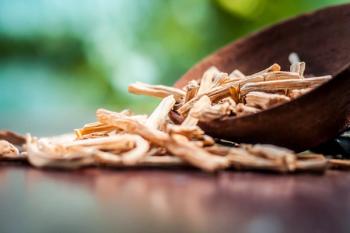
Soy Doesn’t Ease Menopause Symptoms, Says Two-Year Study
Two years of taking soy tablets does not prevent bone mineral density loss, according to results of a study published at the Archives of Internal Medicine.
Two years of taking
Use of soy isoflavone supplements has become popular in recent years as an alternative to estrogen therapy, but results of clinical trials on women taking the dietary supplement are inconsistent and often low-powered.
In the Soy Phytoestrogens as Replacement Estrogen (SPARE) study, researchers from FDA, the University of Miami, and the University of South Florida assigned 248 menopausal women to soy isoflavone or placebo tablets daily for 24 months. All participants were within 5 years of menopause at the time of recruitment and reported bone mineral density scores of -2.0 or higher in the lumbar spine or total hip.
Each soy tablet contained 200 mg of isoflavones with an average 91 mg of genistein and 103 mg of daidzein. The dosage is said to reflect two times the level of high daily soy food intake in Asia, where osteoporotic fractures and breast cancer are at low levels.
The researchers hypothesized that a two-year intervention with soy isoflavones would result in better preserved bone mineral density, reduced hot flashes, and better maintenance of vaginal estrogenization, but none of these improvements occurred.
No significant differences were detected in bone mineral density at the spin, total hip, or femoral neck.
Adverse event reports were similar in both groups, with vaginal bleeding reported in 13.9% of the soy group and 14.3% of the placebo group.
“The small amount of bone loss in our control group, 2.3% inthe lumbar spine and 2.1% in the femoral neck, might have precludedus from detecting any treatment effect,” wrote lead author Silvana Lewis, MD, of the University of Miami.
Vitamin D levels were similar in both groups at baseline and at 24 months, but the relatively small amount of bone loss may have been attributed to adequate calcium intake observed during the trial in both groups.
Lewis described the SPARE study on soy isoflavones and menopause as being well-powered compared to previous research, which has often been limited by short duration, small enrollment, low isoflavone doses, and varied menopausal status, among other factors.
The SPARE study was funded by a grant from the National Institutes of Health.
Newsletter
From ingredient science to consumer trends, get the intel you need to stay competitive in the nutrition space—subscribe now to Nutritional Outlook.




